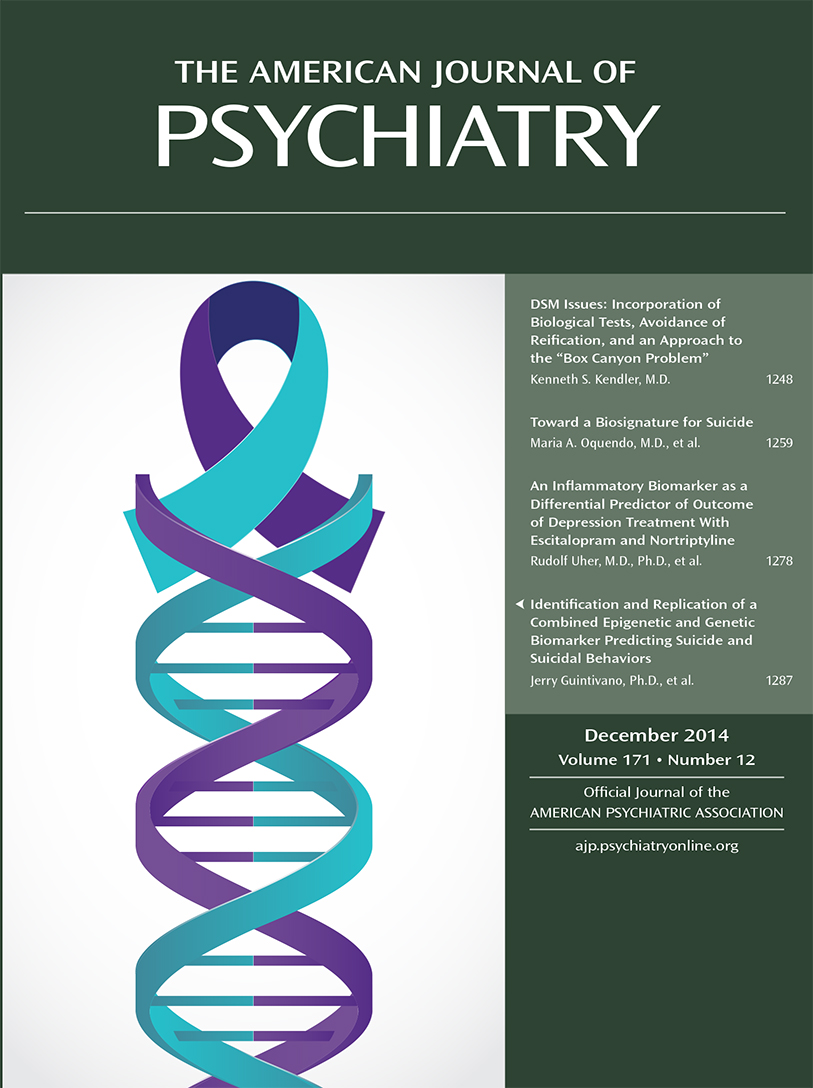An Inflammatory Biomarker as a Differential Predictor of Outcome of Depression Treatment With Escitalopram and Nortriptyline
Abstract
Objective:
Major depressive disorder has been linked with inflammatory processes, but it is unclear whether individual differences in levels of inflammatory biomarkers could help match patients to treatments that are most likely to be beneficial. The authors tested the hypothesis that C-reactive protein (CRP), a commonly available marker of systemic inflammation, predicts differential response to escitalopram (a serotonin reuptake inhibitor) and nortriptyline (a norepinephrine reuptake inhibitor).
Method:
The hypothesis was tested in the Genome-Based Therapeutic Drugs for Depression (GENDEP) study, a multicenter open-label randomized clinical trial. CRP was measured with a high-sensitivity method in serum samples from 241 adult men and women with major depressive disorder randomly allocated to 12-week treatment with escitalopram (N=115) or nortriptyline (N=126). The primary outcome measure was the score on the Montgomery-Åsberg Depression Rating Scale (MADRS), administered weekly.
Results:
CRP level at baseline differentially predicted treatment outcome with the two antidepressants (CRP-drug interaction: β=3.27, 95% CI=1.65, 4.89). For patients with low levels of CRP (<1 mg/L), improvement on the MADRS score was 3 points higher with escitalopram than with nortriptyline. For patients with higher CRP levels, improvement on the MADRS score was 3 points higher with nortriptyline than with escitalopram. CRP and its interaction with medication explained more than 10% of individual-level variance in treatment outcome.
Conclusions:
An easily accessible peripheral blood biomarker may contribute to improvement in outcomes of major depressive disorder by personalizing treatment choice.



